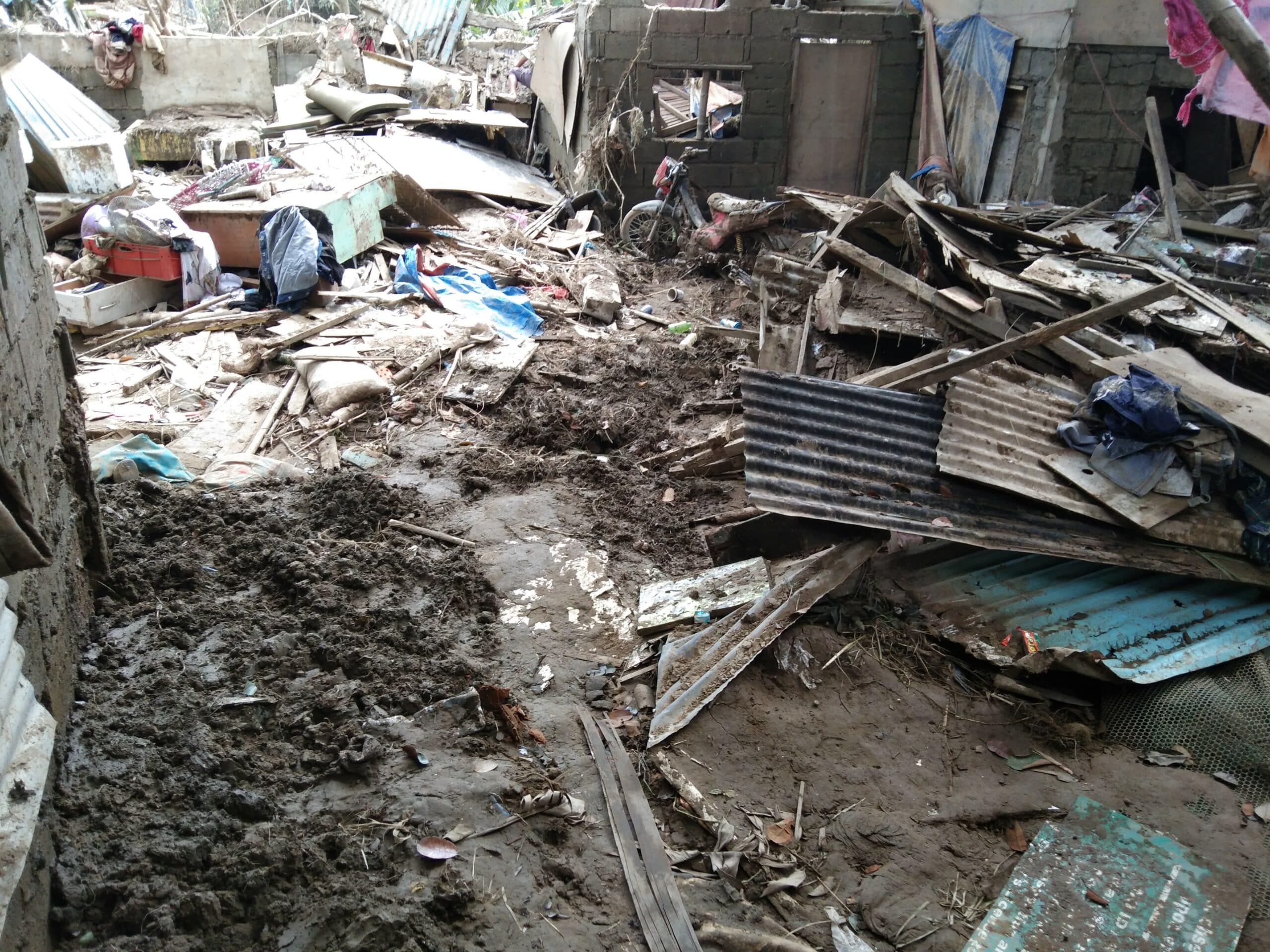A day after Typhoon Ulysses wreaked havoc on many places in the Philippines, I went to one of the areas that was seriously affected by the flood and where a number of the SMSF (St. Madeleine Sophie Foundation) families live. The mothers met me with a surprised smile and showed me the extent of the damage of the flood waters. All their belongings were taken out of their small houses to be washed; all clothes were soaked in mud; the children were tired and sleepy for they stayed awake the whole night of the typhoon. There was no electricity and no running water! They told me about how they were caught off guard, partly because they relied on their previous experiences of floods. They did not expect that the waters will rise up to their roofs.
After a few minutes of sharing, they sent their children to go with me to check on the other families. It was heart-wrenching to see the amount of destruction knowing that it took families years to save up for whatever they have. When we finished the visit, I invited the children to go to the SMSF center so they can wash their muddy feet, enjoy the playground, and eat lunch. While walking, I was listening to them talking about how one of their cousins nearly drowned the other night. Then one of them looked up at me and asked, “That’s the last time this flood is happening, right?”
I was shocked! What answer will I give to that girl? I don’t want to lie to her but I also do not want to scare her by saying, with the climate crisis we will actually experience more super typhoons that can cause more floods. How can I explain to her that even with the usual rains, given the fact that we were situated at the foot of the mountains where the watersheds have been continuously destroyed by quarrying activities, floods of this magnitude are expected to happen? What assurance can I give her that the elders around her, the communities, the leaders of industries and governments are committed to reverse climate change? What hope can I give her? Luckily, another girl said something that veered the conversation to a different direction that I did not have to answer the serious question.
When we got back to the center, one of the youth scholars was there and said he wanted to help in whatever we were doing. His family used to live in the same area that I have just visited but because of the flooding they rented a house on safer ground. I want to think that it was because he experienced the flood in the past years and knew how it was to be a victim, that he is now offering his help. His flood experience has become a “dangerous memory”.
According to Johann Baptist Metz, dangerous memories come from experiences of struggles, sufferings, defeat and other forms of negativities in life of the victims of oppression and injustice. These memories are strong, and lead the victims to question the present order, the status quo; and thus become dangerous for those in power as these become the seeds for resistance and transformation.
I am wondering now, if one possible reason for the inaction or lack of urgency of key players in the world’s carbon emission is this lack of a dangerous memory: the absence of an experience of being a victim and of losing everything you have because of environmental catastrophes. May the world not wait for this to happen and may the cry of the poor be enough to urge us to serious action. May the time come that we can answer that girl’s question with confidence that no, we will not allow this to happen again.
Bethanie Sulleza rscj
Bethanie Sulleza rscj is the President of St. Madeleine Sophie Foundation, which provides early childhood education, tutorial and reading programs, youth formation, and parent-support programs in underprivileged communities in San Jose, Montalban, Philippines.


